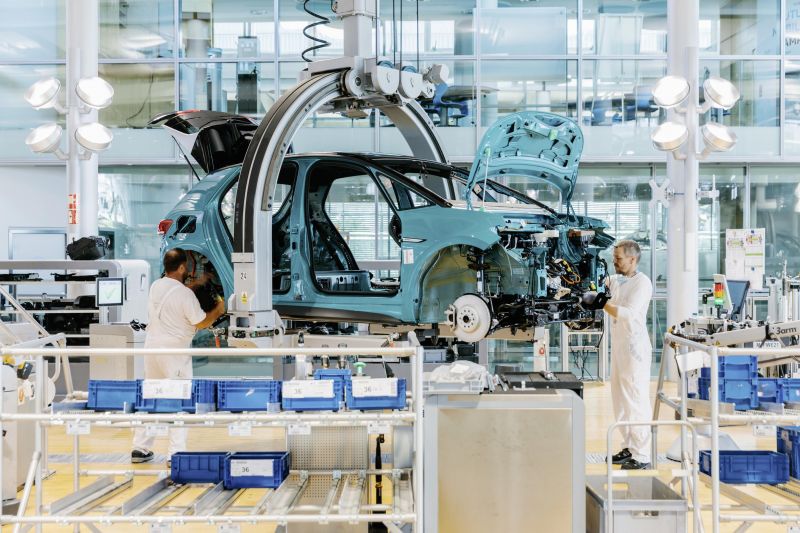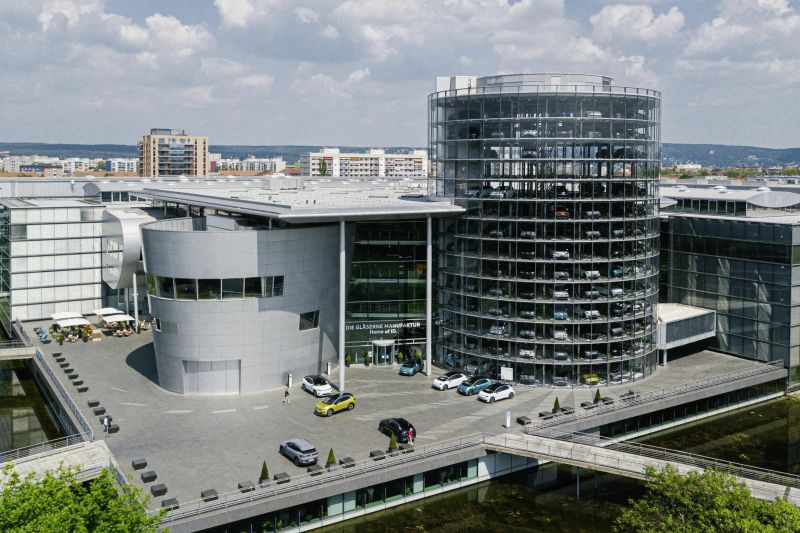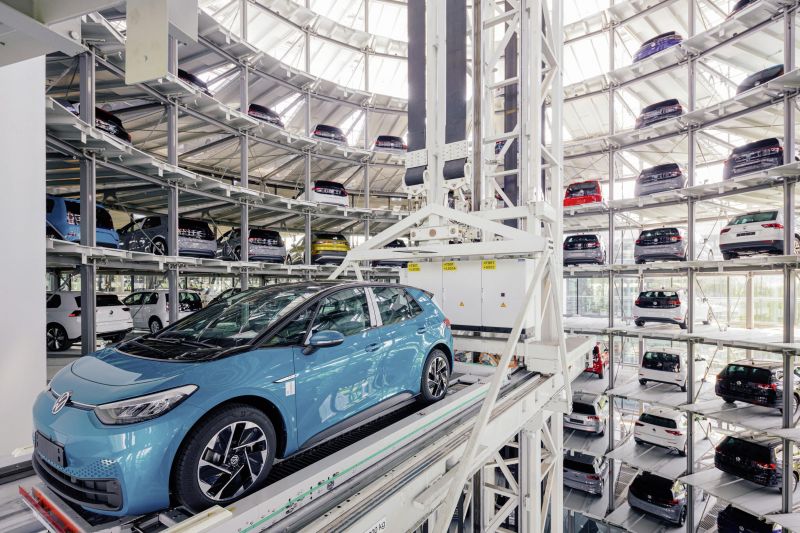Volkswagen may end production at its iconic Transparent Factory due to slow electric vehicle (EV) sales.
Automobilwoche reports the Volkswagen Group plans to end production at the factory as part of a cost-cutting drive by CEO Oliver Blume.
The Transparent Factory currently produces the Volkswagen ID.3 electric hatchback, and may continue to operate in some capacity.
The 300 workers based there will reportedly get reassigned to other tasks.
The plant produced 6500 vehicles last year.
Cutting production at the Transparent Factory would reportedly save around 20 million euros (roughly A$33 million) a year, with the plant currently costing 60 to 70 million (roughly 99-115 million AUD) euros a year to operate.
This comes as Mr Blume reportedly wants to lift returns at Volkswagen by 6.5 per cent for a 10 billion euro (A$16.5 million) profit by 2026.
Volkswagen continues to feel the strain from lower than expected EV take-up.
The company has cut temporary workers at its main EV factory in Zwickau as EV sales slow due to the phaseout of a subsidy in Germany.
The brand also recently reduced production of the ID.4 and ID.7 at its Emden plant in Germany.
“We notice the reluctance of customers in the electrical world very vehemently,” works council chief Manfred Wulff told German newspaper Nordwest Zeitung.
In translated remarks, he also said “something is going wrong” and the situation is “already dramatic”, with demand 30 per cent below original production projections.
Mr Wulff added the ID.7 had been intended to enter production in July, but was delayed to “later this year”.
The Gläserne Manufaktur, or Transparent Factory in English, was opened in 2001 to build the flagship Volkswagen Phaeton.
A popular tourist attraction, the factory is partly constructed from glass, allowing the public to view the final stages of vehicle production.
As well as the Phaeton, it has also produced the Bentley Flying Spur, but has pivoted to EV production in recent years.






